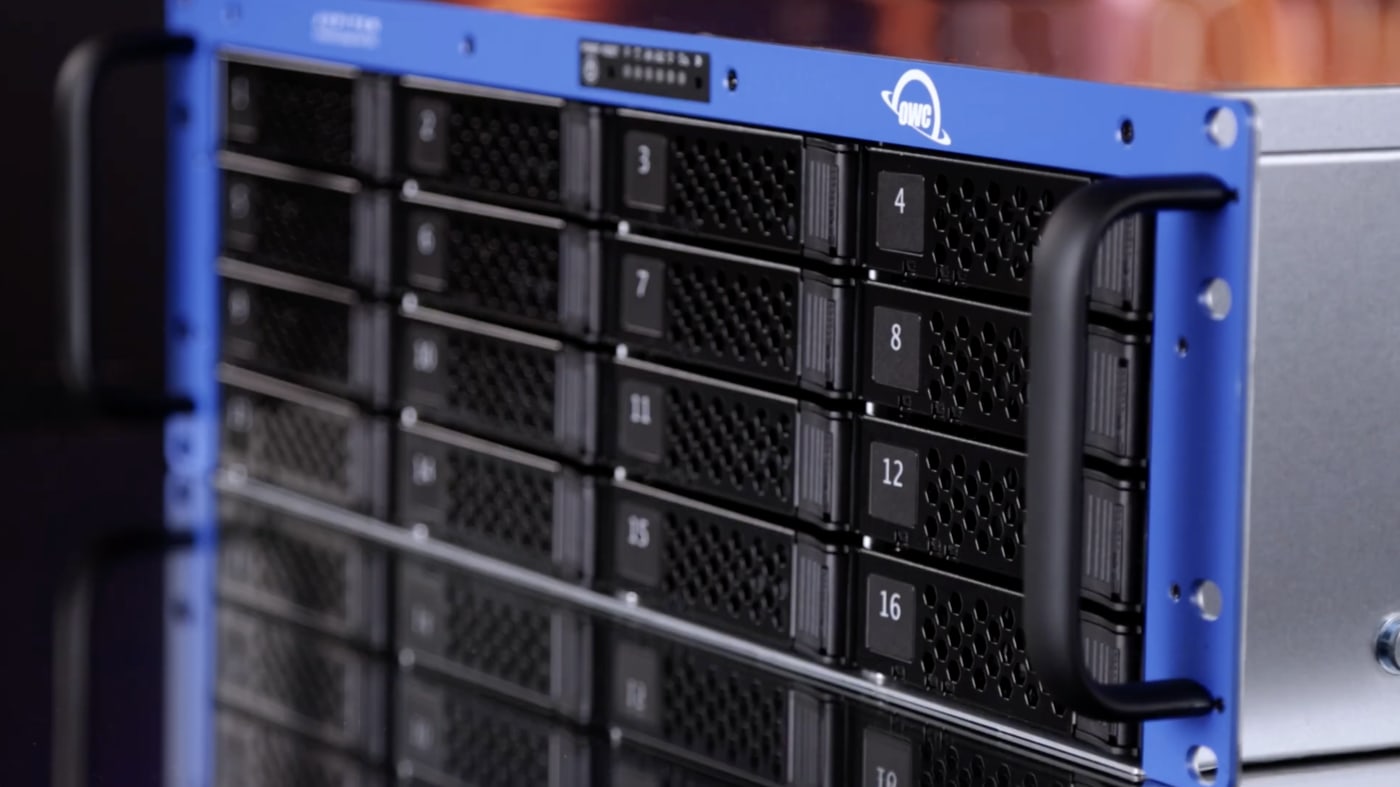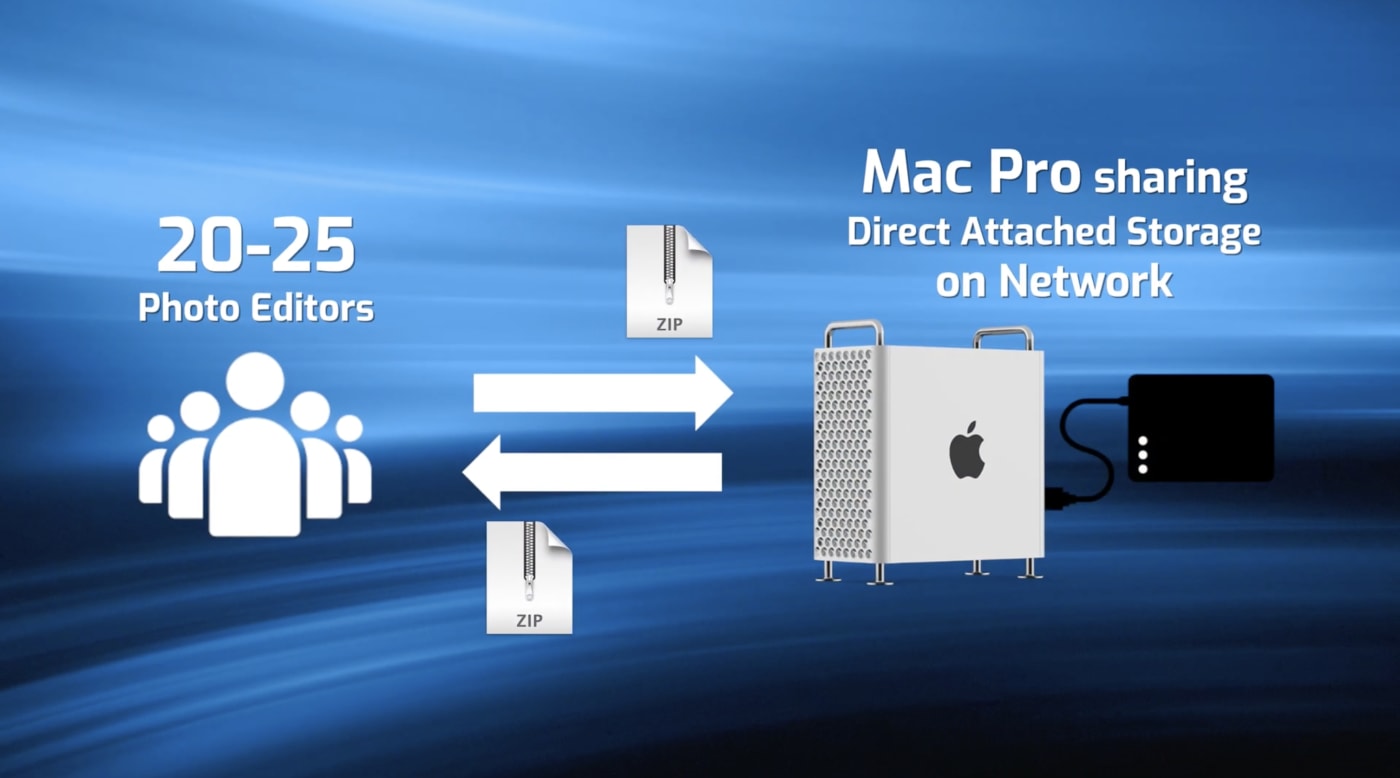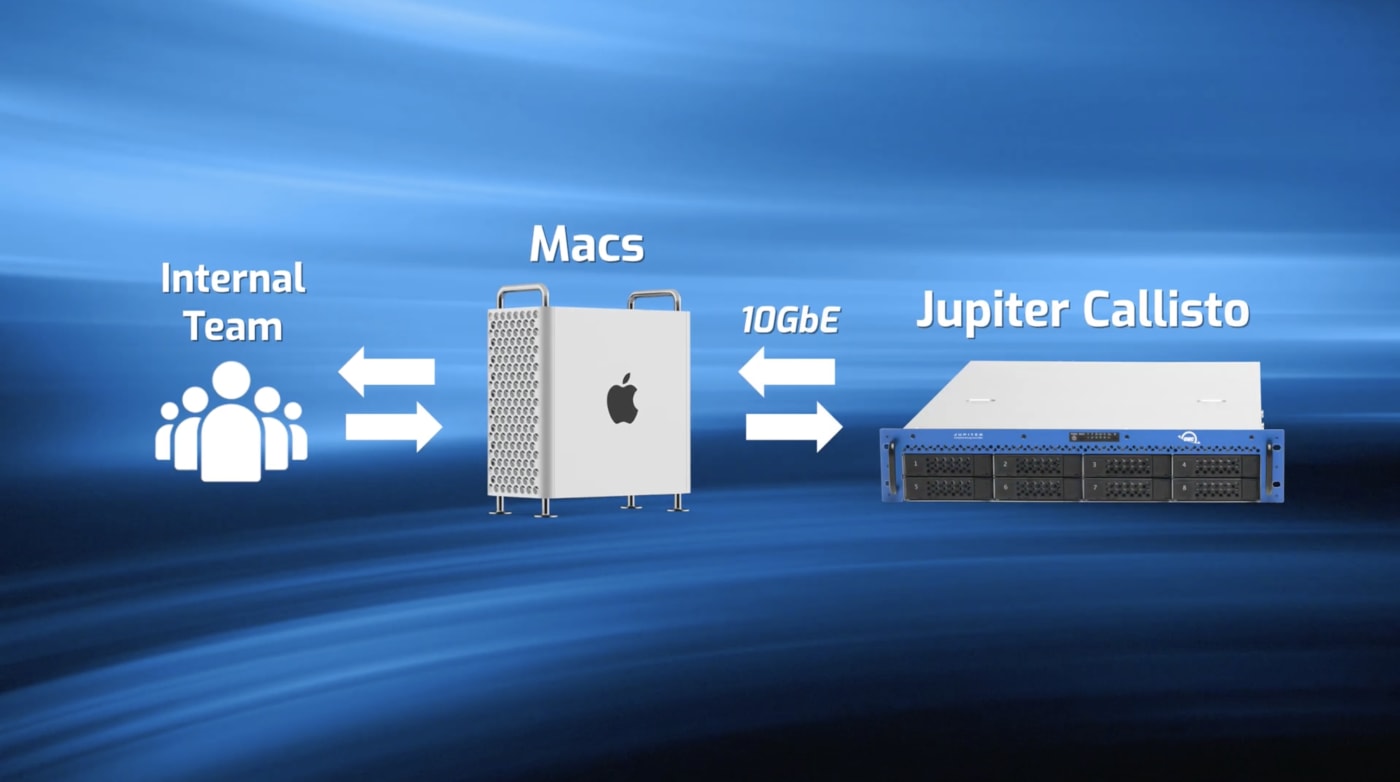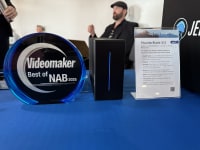Bottleneck Busted: Evolve Edits Finds Inner Peace Amid the Chaos of a Data Deluge
An expensive, cobbled together server solution became a bag of hurt for photo editing house Evolve Edits. Here’s how the company found its way out of the chaos.
Wayne Grayson • May 13, 2024

Dustin Lucas would spend his weekends waiting for it. Wondering when the server would go down, that worry always wedged in the back of his mind.
When it did go down he would sigh, grab his keys, and drive 30 minutes to the Evolve Edits offices in O’Fallon, a southern Illinois suburb of St. Louis. Once there, he would reboot the Mac Pro that stood at the center of the business’s massive photo editing operation, make sure the two Thunderbolt 2 storage racks connected to the Mac lit up as well, and then head back home, his weekend one hour and change poorer.
Unfortunately, weekdays at Evolve Edits weren’t much better. Bottlenecks and reboots were a common occurrence for the company, which performs edits on several thousands of images—accumulating in tens of terabytes in size—each month for their customer base of professional photographers.
As a result, morale was low. Very low. If data transfers weren’t crawling, they were stopped altogether. Lucas felt the sting as much as anyone.
“It was taking us all day sometimes to get client files into our system,” he explains. “People were quitting, I’m getting 25% efficiency out of my staff, and spending much of my time troubleshooting for them. I had a two year old at the time and spent a lot of time away from him because of these problems.
“I regret a lot of that time.”
Fast forward to today and those dark days are a distant, though painful, memory. Today, an OWC Jupiter Callisto stands at the center of the Evolve Edits operation. With the install, the company saw its bottlenecks evaporate overnight. In the time since switching to Jupiter, things improved so much that Lucas bought the business outright.
“We have zip files, RAW files, gigabytes and terabytes of data coming daily—all day, everyday,” Lucas says before adding with a smile, “It doesn’t stop now.”
The Rush Hour Problem
Evolve company makes its money off of data transfer and manipulation. Photographers—most of them paying a monthly subscription of a few hundred dollars—upload their files to Evolve Edits through an AWS instance. From there a team of editors are assigned individual shoots before pulling the requisite files from AWS onto local storage, editing them in Lightroom, and then re-uploading the finished products back to AWS.
Lucas says that Evolve Edits exists to give photographers back precious time to run their business or focus on their creativity that would otherwise be spent staring at a computer and editing photos.
“A lot of photographers spend 30-40% of their time editing,” he says. “From a customer service standpoint, it’s a game changer for them and their customers when we deliver a fully editing wedding shoot in two or three weeks.”
But in the dark times before the Jupiter Callisto, Evolve Edits invested roughly $15,000 in a server solution that would end up causing everyone inside the company a lot of pain.
At that time, the company was in a state of transition. After starting out with four editors and 50-100 customers, the company quickly grew to 23 editors serving 250-300 customers and found its Mac mini server outmatched.
Lucas sought help from outside IT consultants.
“We were getting thrown left and right. ‘Hey, spend ten grand, go buy a Linux box, hook it up to a 10 gig switch,’” he recalls. “All these like super tech-filled solutions and I'm seeing Greek. It just doesn't make sense to me.”
Because Evolve is an all-Apple house, Lucas preferred to go a route that integrated seamlessly with its Mac-centric workflow. He was also looking for something that was easy to setup with solid software and personal tech support.
So, Evolve made the switch to the Mac Pro setup which consisted of a 2013 Mac Pro with dual Gigabit out to connect to two Lacie 8big Thunderbolt 2 storage racks.
Chaos ensued.

The trouble was the sheer amount of files that Evolve’s team of editors would throw at the server each afternoon.
“Everyone would get done around 3 or 4 p.m. and there was just this mass of data being pushed back to the Mac Pro,” Lucas says.
As a result of this rush hour, things would bottleneck requiring near-daily reboots of the server. These reboots never took place at opportune times. “Our editors would be uploading their files and in the middle of 30- or 45-minute, or 2-hour transfers that were only 56% of the way done,” Lucas says. “And they’re uploading zip files, which are useless if they don’t finish.”
As a result, employees had to work later as they waited on files to upload—both inbound and outbound. “A customer uploading 30GB of RAW files would take 8 hours to come in,” Lucas says. “And on top of that, they were ordering same-day turnaround. So, our staff was working later and customers were getting their files back at like 8, 9, or 10 at night.”
The chaos went on for about eight years.
Callisto rising
Desperate to solve his problem, Lucas began researching potential solutions. “I was Googling things like server access network, SANS, and all these other acronyms just trying to figure it out.”
Because of the fact that Evolve’s business model was dependent on receiving and sending files in a timely manner, Lucas knew that the new solution needed to have strong cloud integration in addition to reliable local networking and centralized storage.
As he researched, he found more complicated and more expensive suggestions. “I started learning about 10 Gigabit connections and how expensive they were,” he recalls. “These were $20,000 and upward investments. And COVID just hit and we just lost 40% of our customers.”
Oh, yeah. COVID. As Lucas was searching for a solution to his server troubles, a worldwide pandemic struck, costing Evolve a huge chunk of its business. As a result, the company was forced to cut 16 of its employees, slimming down to eight on-site editors while employing the help of 30 more overseas.
And that’s when Lucas discovered the Jupiter Callisto during a Google search. He reached out to OWC and scheduled a call with the Jupiter sales team which provided him with a full rundown on how Callisto could help the business, along with a non-techie breakdown of the cost-benefit analysis that he could present his CEO with.
“I told him that this was a roughly $10,000 investment that’s going to save us about $40,000 per year,” Lucas says. “My boss was like, ‘Done.’ He’s all about the numbers.”
Within a week of the sales call, the Callisto arrived on Evolve Edit’s doorstep outfitted with 96TB of storage and 256GB of RAM. “It was monumental for us within a week of setting it up,” Lucas adds.
Upon receiving the unit, Lucas was assigned a team of support staff within OWC on call to assist with setup, troubleshooting, and more. “I had sought that out from so many other companies unsuccessfully,” Lucas says. “I need a team of professionals I can lean on, ask questions, email, jump on a call with whenever I have questions. And they were there.
“That support system—regardless of how good the tool was, how good the storage system was—was huge.”

Workflow worries assuaged
Lucas says the addition of the Jupiter Callisto has been transformative to Evolve Edits. The Callisto has made the company’s network storage feel more like local machine storage while providing reliability and uptime they could only dream of before.
“I'm pulling like a 4GB zip file in like 10 seconds, 15 seconds versus the eight minutes it used to require,” he says. “We made a $10,000 investment and the unit has been monumental over the last three to four years.”
Plus, Lucas says the fact that the move to Jupiter Callisto coincided with COVID ended up being perfect timing.
“It singlehandedly made remote work—which nobody was prepared for here—possible,” he says. “We got kicked out of studio almost immediately. So having the infrastructure and having a good background of the VPN and security system all setup inside of the Jupiter, without that I don’t know what we would have done.
“We probably would have been driving around hand delivering hard drives. It saved our business.”
With Jupiter Callisto at the center of the business, Lucas says team morale improved significantly providing peace of mind alongside workflow smoothing cloud-based integrations. This allows connections to AWS, Digital Ocean, Dropbox and more, making it easier than ever to receive and deliver files from and to customers.
“It’s the core of all our systems: customer, external team, internal—they all work better and faster now that they’re tied to Jupiter Callisto,” he says. “And that unit is not only helping them work directly with each other, but it's making sure our customers files are coming inbound and outbound and accessible at all hours of the night.
“It’s paramount for our business.”
Other topics you might like
Share Your Work: Turn Your Photos Into Stickers With the Easy-to-Use Liene PixCut S1
Updated on Apr 17, 2025
This Race Documentary is a Masterclass in Real-Time Storytelling
Updated on Apr 15, 2025
Capture Beautiful Photos With This Free, 3D-Printed, DIY Robotic Panorama Head
Updated on Apr 10, 2025
OWC’s New ThunderBlade X12 Awarded Best Desktop Storage of NAB 2025
Updated on Apr 9, 2025



